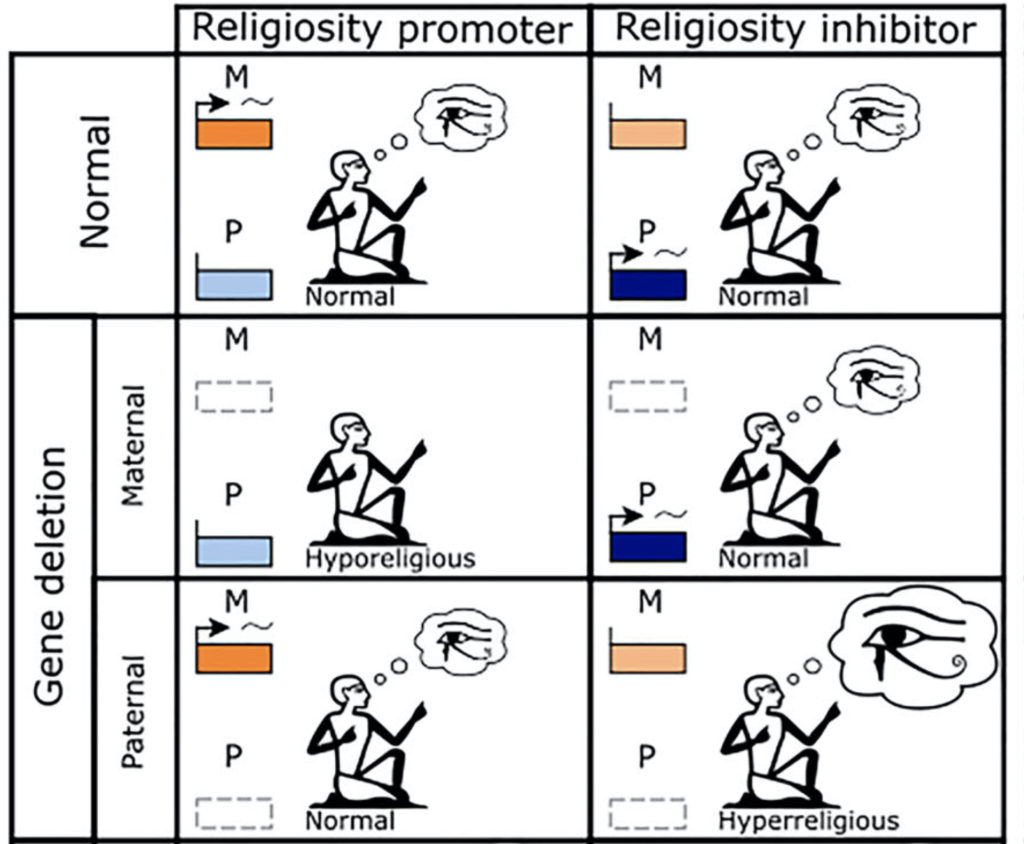Stucky K & Gardner A (2022) The evolution of religiosity by kin selection. Religion, Brain & Behavior

Despite religion’s apparent ubiquity, hypotheses about the selection pressures that may have shaped its cognitive foundations remain controversial. Here, we develop and analyze a mathematical model inspired by Crespi and Summers’ suggestion that parent-offspring conflict has driven the evolution of religious beliefs to explore the causes and consequences of these selection pressures. To this end, we employ kin selection methodology to investigate how selection may mold an individual’s propensity for religiosity and corresponding patterns of gene expression, revealing that the evolution of religiosity is modulated by genetic relatedness between social partners, that selection in relation to religiosity may depend on an individual’s age and sex, and that religiosity can foment intragenomic conflicts of interest that give rise to parent-of-origin specific patterns of gene expression and concomitant clinical disorders. More generally, we develop a formal, theoretical framework that enables the derivation of clear-cut, comparative predictions about adaptive as well as maladaptive religiosity phenotypes.